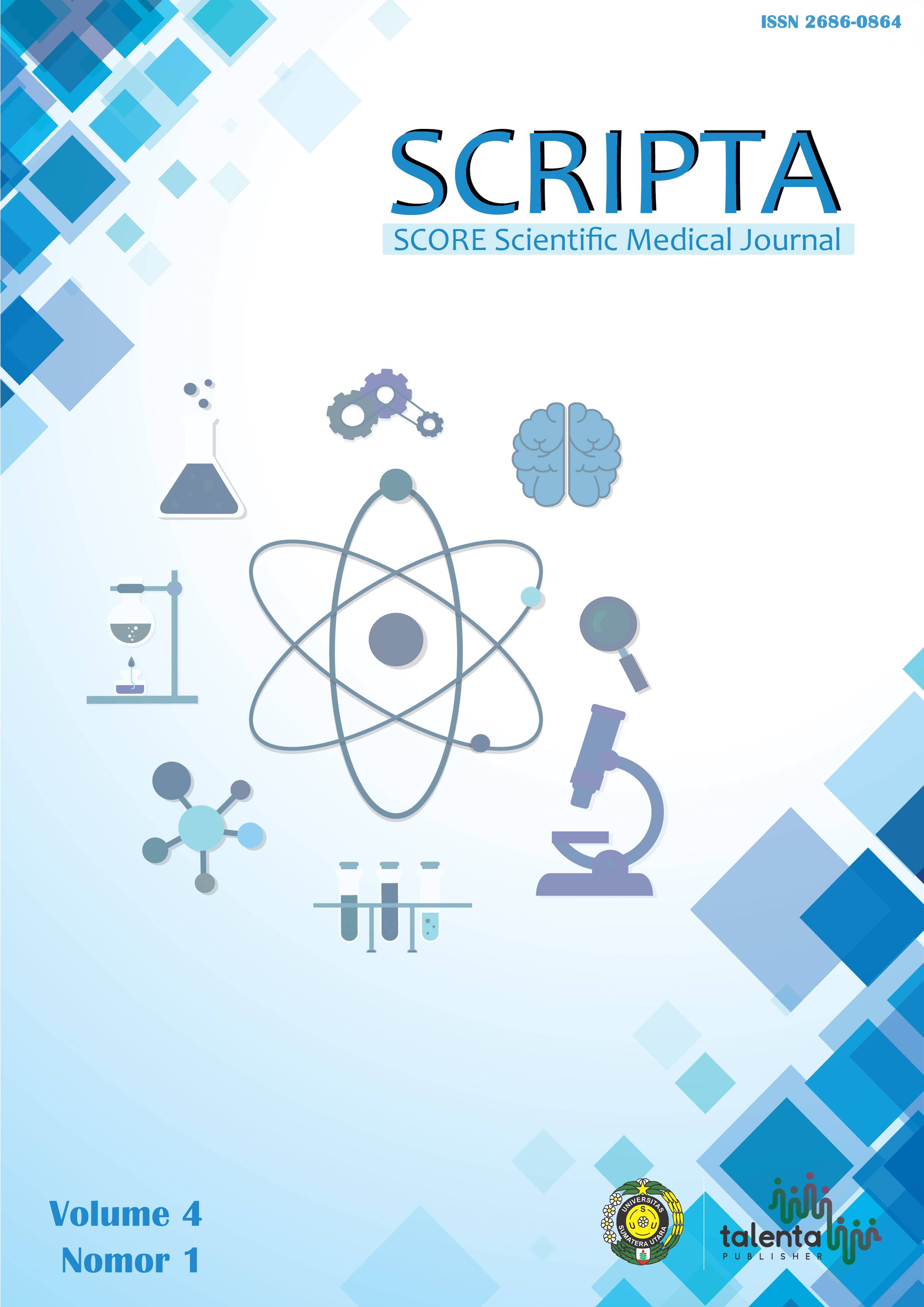Molecular Docking Study of Gingkgo biloba Compounds as Potential Inhibitors of SARS-CoV-2
DOI:
https://doi.org/10.32734/scripta.v4i1.8399Keywords:
Bilobetin, Ginkgo Biloba, ginkgolide-C, SARS-CoV-2Abstract
COVID-19 pandemic caused by SARS-CoV-2 is a challenge for researchers to find effective drugs for this disease. Previous research had identified the role of Mpro, TMPRSS2, RdRp, and ACE2 which were useful as promising drug targets to inhibit SARS-CoV-2. This study aims to identify the potential compounds derived from Ginkgo biloba as potential SARS-CoV-2 inhibitors using a molecular docking study. A total of twenty-one compounds of Ginkgo biloba and comparative drugs were used in this study. The materials were downloaded from rcsb for protein targets and pubchem for comparative drugs and compounds. In this study, Lipinski rule of five using Swiss ADME web tool was used. Moreover, toxicity analysis using admetSAR 2.0 online test also used to predict toxicological profile of compounds. Dockings were carried out on Mpro, TMPRSS2, RdRp, and ACE2 protein targets by AutodockTools 1.5.6 and Autodock Vina. The visualization of molecular interaction was carried out by Discovery Studio v16. Nine compounds met the criteria as drug-like components and were safe. Docking results showed that ginkgolide-C and bilobetin showed strong molecular interactions to all protein targets compared to the comparative drugs and other compounds. In RdRp, ginkgolide-C showed the highest binding energy with -12.7 kcal/mol. Moreover, in TMPRSS2, ACE2 and Mpro, bilobetin also showed the highest binding energy with -12.7, -9.7 and -10 kcal/mol, respectively. Ginkgolide-C and bilobetin have the potential to be developed as SARS-CoV-2 inhibitors. Therefore, in vitro and in vivo investigations are needed to bring these compounds to the clinical setting.
Downloads
Downloads
Published
How to Cite
Issue
Section
License
Copyright (c) 2022 Putri Mahirah Afladhanti Afladhanti, Muhammad Despriansyah Romadhan Romadhan, Haidar Ali Hamzah Hamzah, Safa Nabila Putri Putri, Ellen Callista Angelica Angelica

This work is licensed under a Creative Commons Attribution-ShareAlike 4.0 International License.
Authors who publish with SCRIPTA SCORE Scientific Medical Journal agree to the following terms:
- Authors retain copyright and grant SCRIPTA SCORE Scientific Medical Journal right of first publication with the work simultaneously licensed under a Creative Commons Attribution-NonCommercial License that allows others to remix, adapt, build upon the work non-commercially with an acknowledgment of the work’s authorship and initial publication in SCRIPTA SCORE Scientific Medical Journal.
- Authors are permitted to copy and redistribute the journal's published version of the work non-commercially (e.g., post it to an institutional repository or publish it in a book), with an acknowledgment of its initial publication in SCRIPTA SCORE Scientific Medical Journal.














